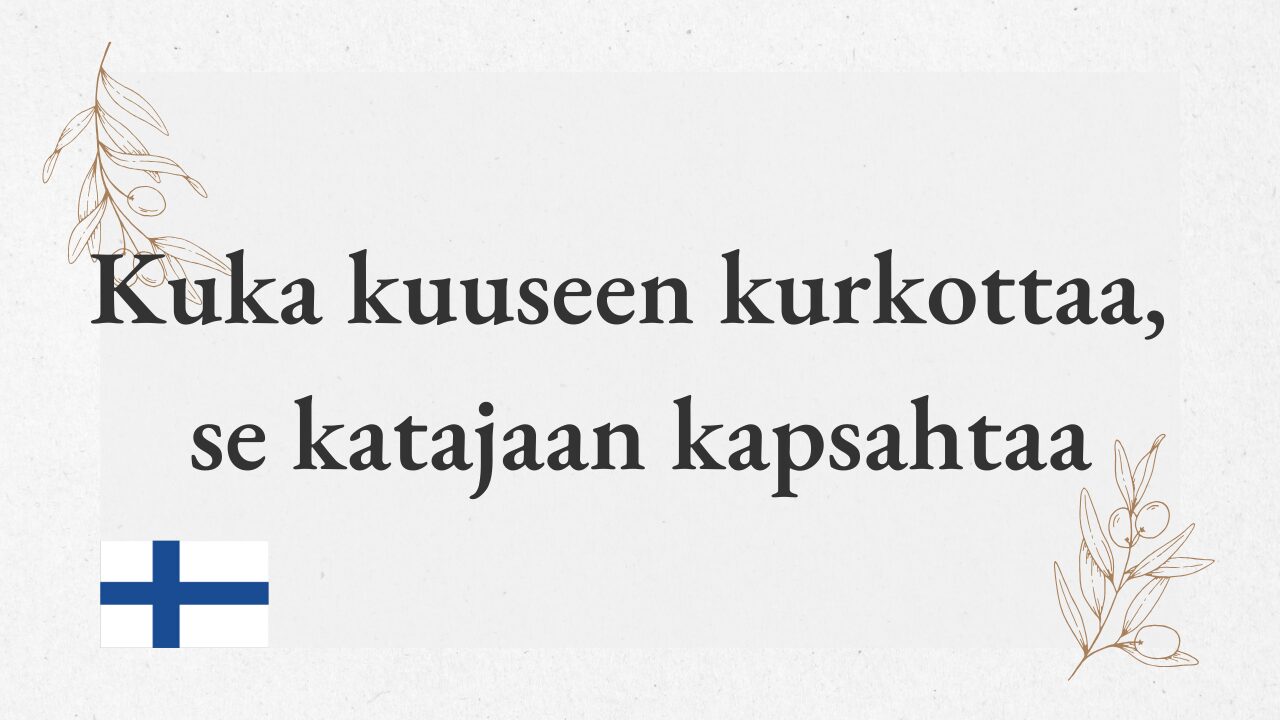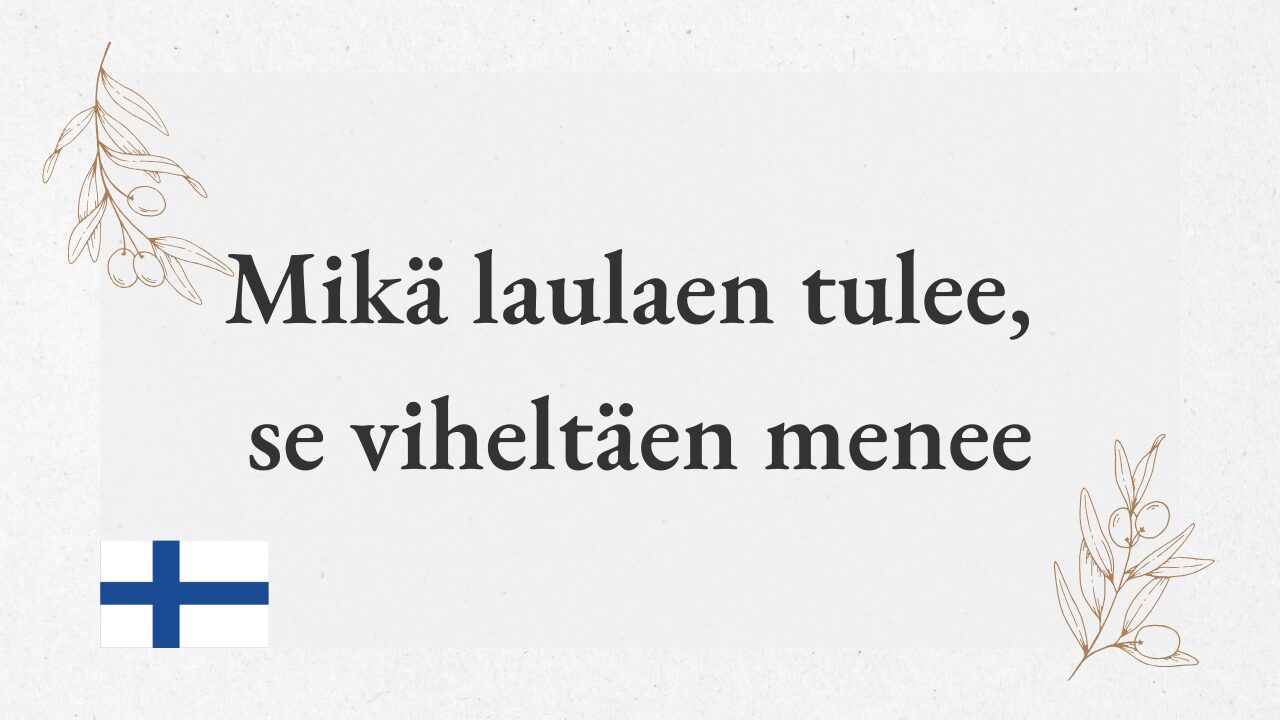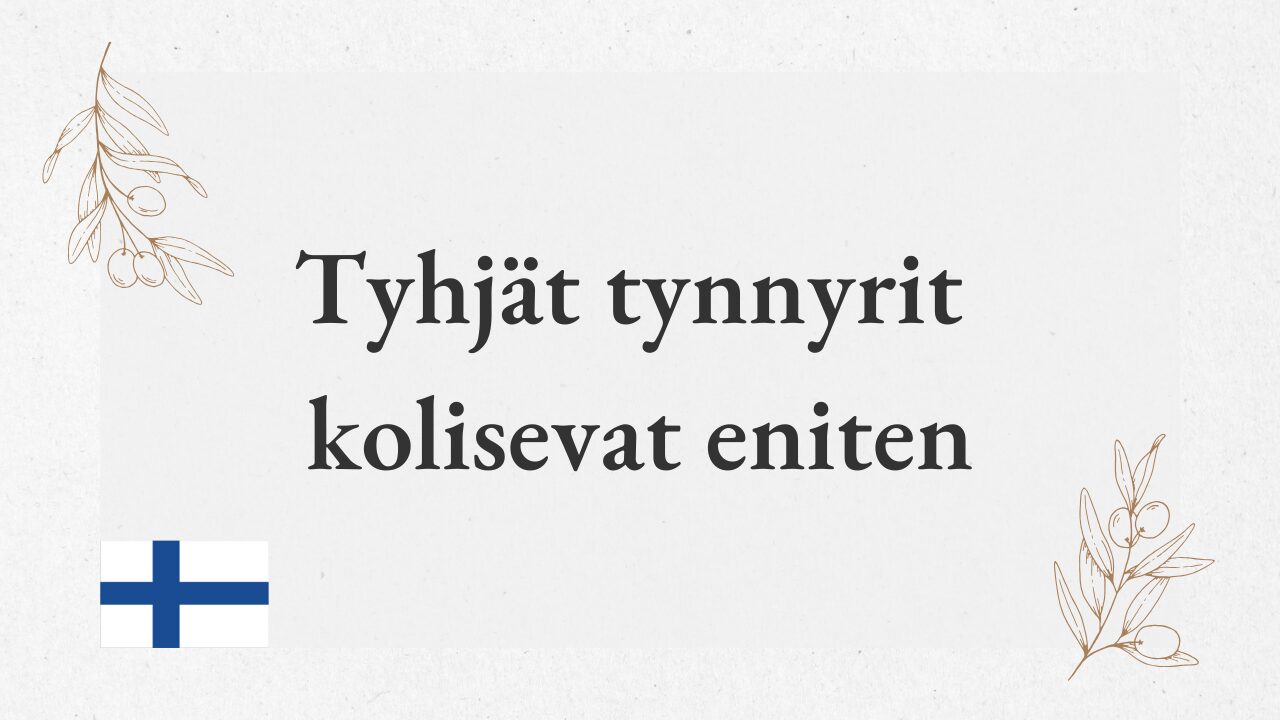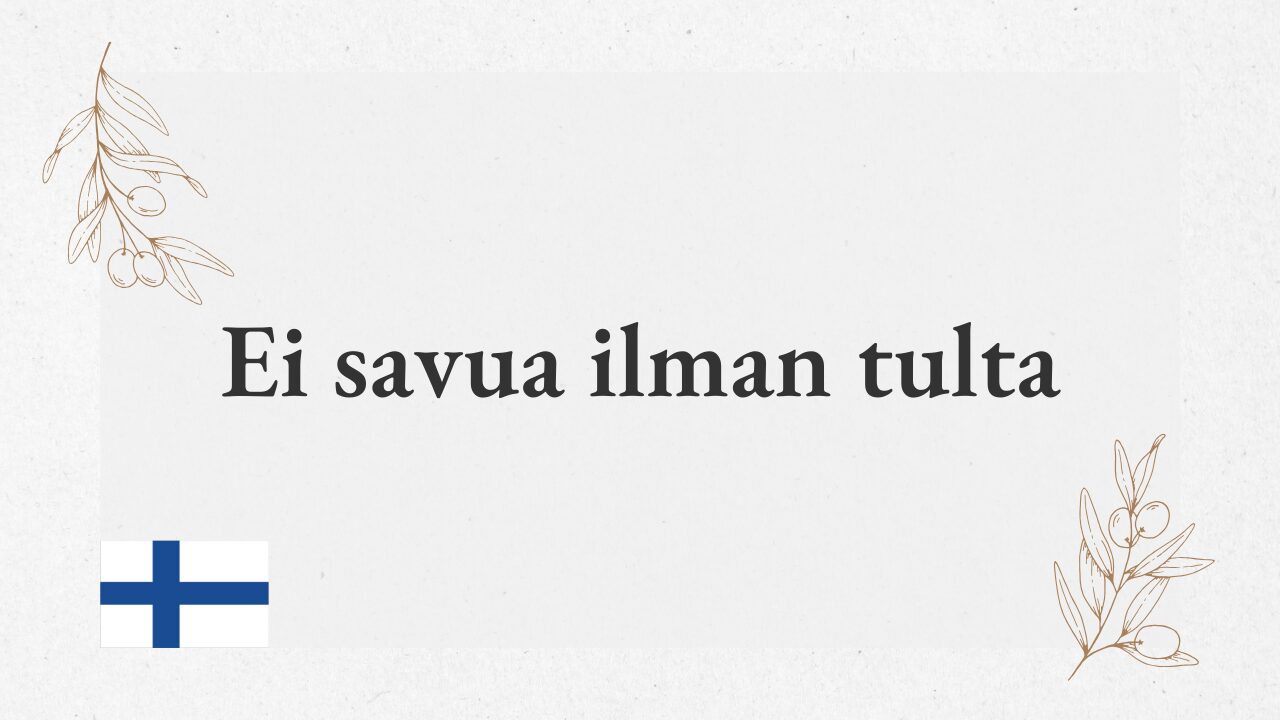“Hiljaa hyvä tulee” – Slow and steady wins the race
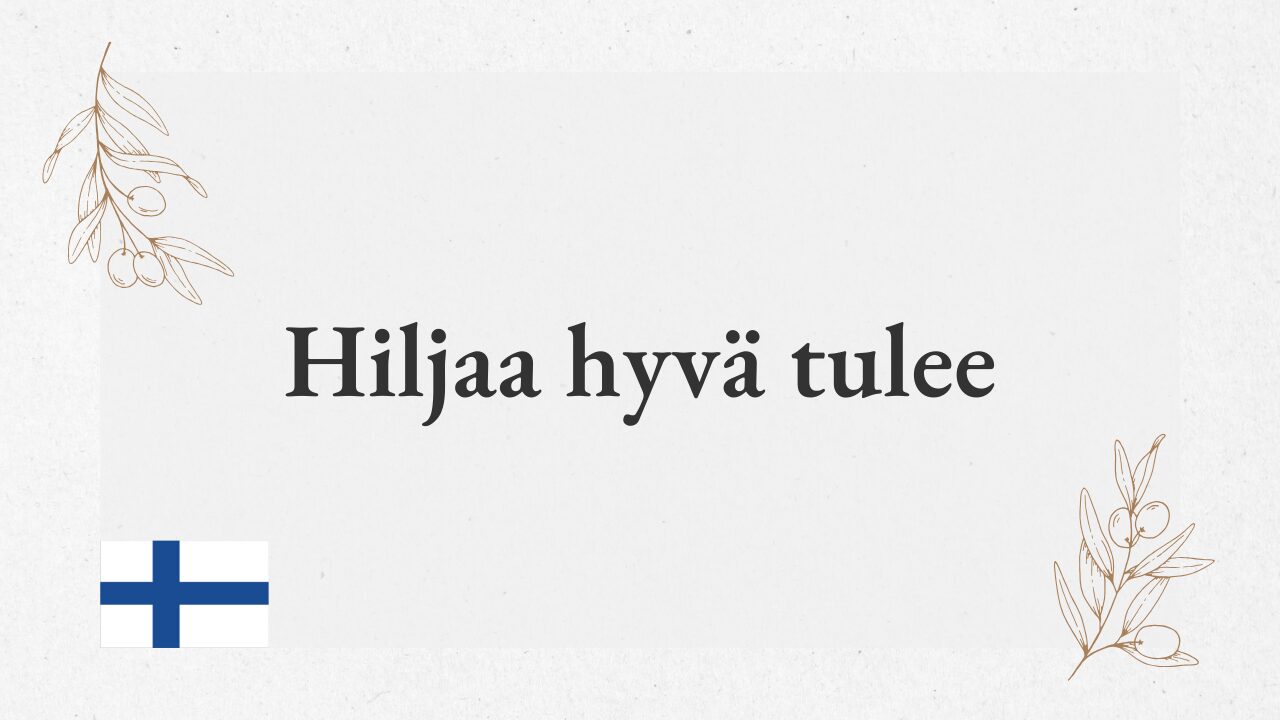
Meaning
“Hiljaa hyvä tulee” means “If you go slowly, you’ll achieve something good.” This Finnish proverb teaches that taking your time and carefully working on something without rushing will lead to better outcomes. It emphasizes the importance of a long-term, deliberate approach rather than focusing on short-term results. This expression embodies the Finnish value of patience, suggesting that taking time to do things properly will yield more sustainable and higher-quality results.
In Japanese, a similar saying is “急がば回れ” (If you’re in a hurry, take the long way around), which conveys the lesson that being careful and thorough, rather than rushing, will ultimately lead to success.
In English, the phrase “Slow and steady wins the race” carries a comparable meaning. This expression comes from Aesop’s fable “The Tortoise and the Hare,” teaching that consistent and steady effort will help you reach your goals in the end.
Origin
Finland is a country characterized by harsh winters and gentle summers, where people must live in tune with the rhythms of nature. For example, in agriculture, once seeds are sown, farmers must wait patiently for crops to grow and mature according to nature’s cycles. This necessity of waiting and working in harmony with nature has made it important for people to value patience and the process of waiting.
Due to this cultural and environmental background, “Hiljaa hyvä tulee” has become a fundamental mindset for the Finnish people in all areas of life. It serves as a reminder to not rush but to proceed carefully and with patience, trusting that good results will come to those who put in the time and effort.
Conclusion
“Hiljaa hyvä tulee” is a Finnish proverb meaning “If you go slowly, you’ll achieve something good.” It emphasizes the importance of taking time and working carefully rather than rushing, reflecting the Finnish cultural values and their connection to nature. This phrase encourages patience and persistence, highlighting the belief that steady and mindful effort leads to lasting success.

